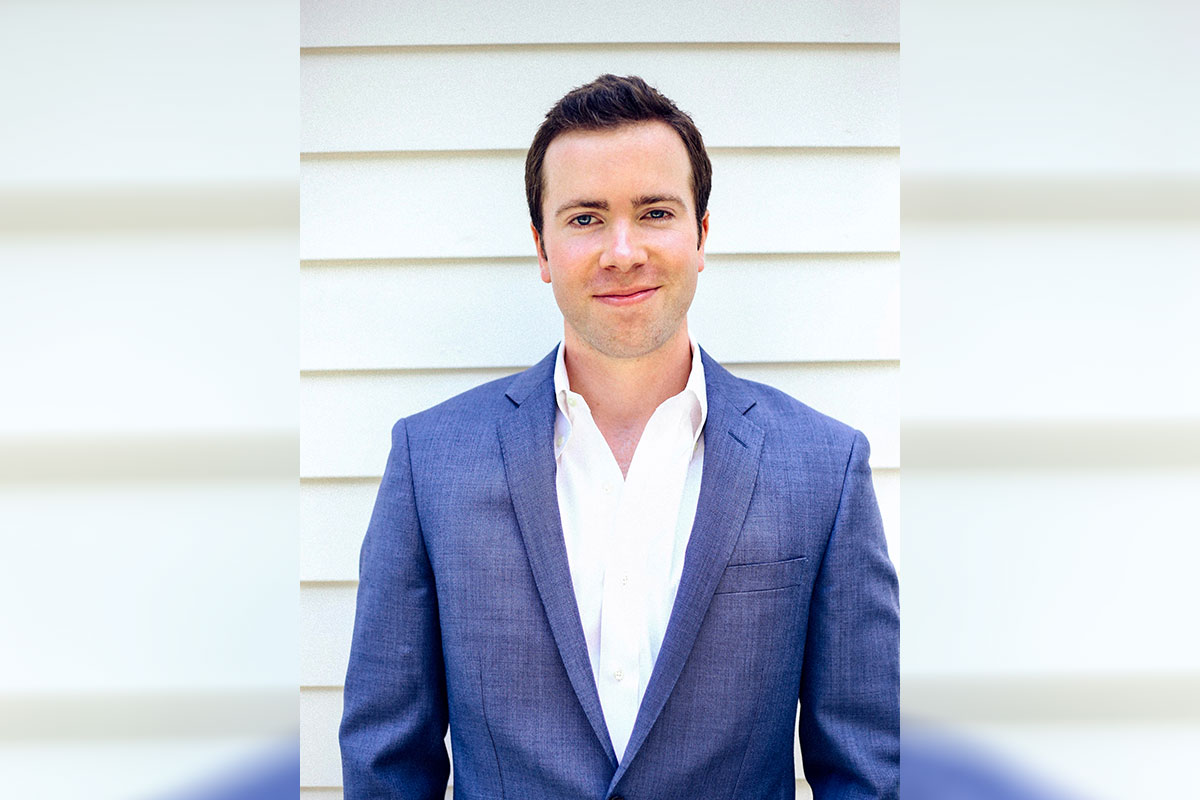
Nursing
Enhance your nursing career with our PMHNP program. Acquire skills to provide holistic mental health care.
Nursing, Psychiatric Mental Health Nurse Practitioner (PMHNP), M.S.N.
The Psychiatric Mental Health Nurse Practitioner (PMHNP) program, one of the Master of Science in Nursing (M.S.N.) degree concentrations at MTSU, offers advanced practice opportunities for nursing professionals. The Psychiatric Mental Health Nurse Practitioner provides care to patients with psychiatric and mental health disorders and collaborates with primary care providers and specialists to deliver holistic care to individuals, families or groups with acute or chronic mental health conditions.
Psychiatric Mental Health Nurse Practitioners (PMHNPs) work in a variety of settings and fulfill distinct roles including:
- Assessment, diagnosis, and treatment of psychiatric and mental health disorders
- Providing therapy
- Prescribing medications
The Psychiatric Mental Health Nurse Practitioner MSN program helps address a growing need for psychiatric and mental health providers. The program offers a high-quality, affordable, and time-efficient curriculum:
- 42 credit hours
- 630 direct patient care clinical hours
- 4-semester and 5-semester programs of study
- Coursework is completed online
- Clinical rotations are arranged with approved preceptors, in the student's home area when possible
- Assistance with preceptor selection is available upon request
News Briefs

Student feels confident in skills learned in MTSU's Psychiatric Mental Health Nurse Practitioner program
After working in the business world for a year, William McBride knew he needed to return to his true passion — psychology. Having already earned his Bachelor's degree in psychology, McBride worked as a mental health specialist in Franklin while he worked on his nursing degree. While working as a psychiatric nurse at Centennial Medical Center for two years, McBride decided to enroll in MTSU's accelerated Psychiatric Mental Health Nurse Practitioner program. "I chose MTSU because it was affordable, accelerated and most importantly, taught by PMHNPs," he said. McBride said the most important thing the program has taught him is how to be an independent learner. "This is not a 'hold your hand' program," he said. "The program repeatedly challenged us to seek out the best scientific evidence on which to inform our practice, which will be vital moving forward as the field evolves and clinicians must adapt to new technologies and interventions. As I move into practice, I feel confident that I can find and apply the best scientific evidence to my practice as a PMHNP. This will obviously make me a safer and more effective clinician."

Graduate says PMHNP program taught her skills, knowledge needed to become effective clinician
Neenu Varkey had worked as a Med-Surg and a cardiac registered nurse before she began working as a psychiatric registered nurse at a hospital in Franklin, Tennessee. She realized psychiatry was her passion there and eventually enrolled in MTSU's Psychiatric Mental Health Nurse Practitioner program, where she learned valuable skills from experienced faculty and staff. "MTSU's MSN PMHNP program taught me the skills and knowledge that are needed to become an effective clinician," Varkey said. "The classes are taught by experienced faculty that have both classroom and real-world experience. Most of my professors already practiced or are still practicing as a nurse practitioner." Varkey said the program's hands-on experiences helped her truly understand the role as a PMHNP. "I believe going forward, the skills and knowledge I have attained from this program will help me to better support and help my patients," she said.
News Briefs
Student feels confident in skills learned in MTSU's Psychiatric Mental Health Nurse Practitioner program

After working in the business world for a year, William McBride knew he needed to return to his true passion — psychology. Having already earned his Bachelor's degree in psychology, McBride worked as a mental health specialist in Franklin while he worked on his nursing degree. While working as a psychiatric nurse at Centennial Medical Center for two years, McBride decided to enroll in MTSU's accelerated Psychiatric Mental Health Nurse Practitioner program. "I chose MTSU because it was affordable, accelerated and most importantly, taught by PMHNPs," he said. McBride said the most important thing the program has taught him is how to be an independent learner. "This is not a 'hold your hand' program," he said. "The program repeatedly challenged us to seek out the best scientific evidence on which to inform our practice, which will be vital moving forward as the field evolves and clinicians must adapt to new technologies and interventions. As I move into practice, I feel confident that I can find and apply the best scientific evidence to my practice as a PMHNP. This will obviously make me a safer and more effective clinician."
Graduate says PMHNP program taught her skills, knowledge needed to become effective clinician

Neenu Varkey had worked as a Med-Surg and a cardiac registered nurse before she began working as a psychiatric registered nurse at a hospital in Franklin, Tennessee. She realized psychiatry was her passion there and eventually enrolled in MTSU's Psychiatric Mental Health Nurse Practitioner program, where she learned valuable skills from experienced faculty and staff. "MTSU's MSN PMHNP program taught me the skills and knowledge that are needed to become an effective clinician," Varkey said. "The classes are taught by experienced faculty that have both classroom and real-world experience. Most of my professors already practiced or are still practicing as a nurse practitioner." Varkey said the program's hands-on experiences helped her truly understand the role as a PMHNP. "I believe going forward, the skills and knowledge I have attained from this program will help me to better support and help my patients," she said.
Related Media

A Master’s of Science in Nursing (MSN) degree with a Psychiatric Mental Health Nurse Practitioner concentration can lead to career opportunities in a variety of areas. With Nurse Practitioner jobs expected to increase 45 percent in the next eight years, graduates may work in a variety of settings like:
- Colleges and Universities
- Community Health Centers
- Correctional Facilities
- Domestic Violence Shelters
- In-patient Mental Health Facilities
- Nursing Homes
- Out-patient Mental Health Clinics
- Primary and Secondary Schools
- Private Practices
- Rehabilitation Centers
- Regional Hospitals
- Urgent Care Centers



Nursing Accreditation
The master's degree program in nursing at Middle Tennessee State University is accredited by the Commission on Collegiate Nursing Education (http://www.ccneaccreditation.org).
Mission and Goals
The mission of the Middle Tennessee State University School of Nursing is to provide excellence in nursing education by preparing individuals to meet the dynamic and complex health care needs of society. Through robust academic programs, the School of Nursing demonstrates its commitment to the art and science of nursing. This mission is exemplified in the preparation of Advanced Practice Registered Nurses in the areas of Family Practice (FNP) and Psychiatric Mental Health (PMH) at MTSU.
The graduate of an FNP program is prepared to care for individuals and families across the lifespan. The FNP role includes preventative healthcare, as well as the assessment, diagnosis, and treatment of acute and chronic illness and preventative health care for individuals and families. Family nurse practitioners demonstrate a commitment to family-centered care and understand the relevance of the family's identified community in the delivery of family-centered care (NONPF, 2013). Graduates of the MTSU FNP program are prepared to sit for national certification as FNPs.
The graduate of a PMHNP program is prepared to care for individuals and families across the lifespan who are at risk for developing and/or having a diagnosis of psychiatric disorders or mental health problems. The PHMNP provides primary mental health care to patients seeking mental health services in a wide range of settings. This includes assessment, diagnosis, and management of mental health and psychiatric disorders (NONPF, 2013). Graduates of the MTSU PMHNP and the PMHNP-PMC are prepared to sit for national certification as PMHNPs.
Specific content and competencies must be addressed as part of your NP education. These areas are interrelated. Additionally, students at MTSU must meet program outcomes that are based on The Essentials of Master's Education.
- Program Outcome 1: Demonstrate synthesis and application of knowledge from nursing and related disciplines as the basis for clinical judgment and nursing practice to improve care delivery and health outcomes across populations.
- Program Outcome 2: Apply knowledge of organizational and leadership theories within the systems of healthcare using ethical principles to improve outcomes, manage risks, and provide cost-effective care.
- Program Outcome 3: Engage in self-reflection that fosters personal well-being, commitment to lifelong learning, nursing expertise, and leadership.
- Program Outcome 4: Utilize principles of safety science and quality to improve care delivery, and to create a culture of patient, provider, and workplace safety.
- Program Outcome 5: Generate, synthesize, translate, apply, and disseminate knowledge to improve health outcomes, resolve practice problems, and transform health care.
- Program Outcome 6: Use appropriate technologies to enhance health care services and improve health outcomes.
- Program Outcome 7: Develop and promote a professional identity that reflects nursing characteristics, norms, and values while adhering to ethical principles to carry out professional responsibilities.
- Program Outcome 8: Collaborate effectively across professions, with patients and families, and within communities to enhance care, improve outcomes, and reduce costs.
- Program Outcome 9: Identify and engage partners at local, community, regional, and global levels to support and improve population health outcomes consistent with epidemiologic, genetic, and genomic data to design evidence-based approaches.
- Program Outcome 10: Provide person-centered evidence-based holistic care through continuous evaluation of interventions to improve care delivery and health care outcomes.
Additional Information

CONTACT US

Please fill in the form below and we will contact you very soon



















